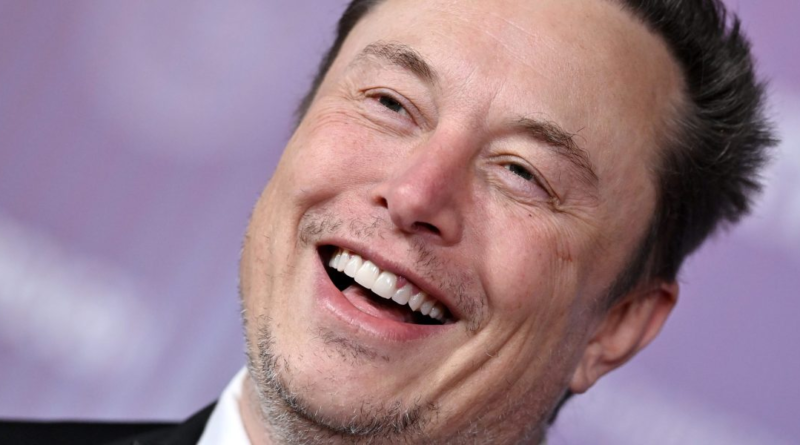Elon Musk and his fellow CEOs are outpacing their workers with fastest pay growth in 14 years—but some still justify massive pay packages by ‘fairness’
Even as inflation gradually cools off, there is one price rise affecting corporate America that knows no end in sight—the ever-rising cost of paying top executives.
Despite more than a decade of controversy, median CEO compensation at the 500 largest S&P companies increased at its highest pace in at least 14 years in 2023 according to figures from Institutional Shareholder Services cited by the Financial Times on Sunday.
The debate over high CEO pay in America has raged for years, as proponents argue the free market sets the level while critics claim it is untethered from reality given that U.S. executives’ peers in fellow industrialized nations earn a fraction of what they take home.
Data from Equilar published earlier this month declared Jon Winkelreid from private equity firm TPG the best-paid executive in America, taking in nearly $200 million in total compensation, while the top five in its ranking all earned a minimum of $150 million each. Many Americans are no longer willing to countenance these kind of rewards, as wages adjusted for inflation stagnated for decades before the recent bout of high inflation both pushed up wages and strained their finances.
This controversy has taken on new dimensions amid Elon Musk’s campaign to “restore Tesla’s stockholder democracy” by ratifying his 2018 pay package. Comprised of stock options with deeply discounted strike price, it’s worth on balance nearly $8 billion per year.
A decade ago the late vice chairman of Berkshire Hathaway, Charlie Munger, pushed back against the idea that massive pay was sometimes justified in order to sufficiently incentivize executives.
“Do you really think that a man who craves power and significance, likes decision-making and running a big company, has one of the important public ranks in America and makes $5 million a year—do you really think he would work a lot more effectively if you raise him to seven?” Munger told CNN in 2014. “I think the whole thing is insane.”
By comparison, Berkshire’s CEO, Warren Buffett, earned only $100,000 in annual salary over the past 40 years with total compensation barely reaching the half-million mark, SEC filings analyzed by Business Insider showed in December.
Board directors and high CEO pay
Munger argued the system had an inherent flaw: With high compensation for non-executive directors in exchange for their cushy and lucrative seats on corporate boards, these individuals were often happy to grant ever larger CEO compensation deals—“a daisy chain of reciprocity,” as he saw it.
One such person who could fit Munger’s characterization is Robyn Denholm, who attested in court to the “life-changing” wealth she accumulated as the chair of Tesla’s oft-maligned board full of Musk’s friends and family.
Over the past month, the Australian emerged from her role in the background to mount a veritable media blitz lobbying for CEO Elon Musk’s pay deal—dubbed the largest in human history.
In 2018, shareholders granted the board’s request to give Musk the right to purchase up to 304 million shares for a price of $23.34 each—which in theory would net him $47 billion were he to exercise the options and subsequently sell the stock at its current $178 price—if the company hit over a dozen targets ranging from market capitalization to revenue and earnings. Every single one was met, according to Tesla, amply rewarding shareholders—of which Musk is by far the biggest.
This package was declared null and void in January by a Delaware court due to the fact that Denholm and her fellow directors allowed Musk to set the terms himself. This lenient board governance, however, left the very real possibility that he effectively would not be rewarded at all for his past six years of labor.
As chair responsible for the situation, Denholm argued it was only fair shareholders re-approve Musk’s pay in last week’s crunch vote. “Put yourself in his shoes,” she urged earlier this month. “[It’s] really about fairness—fairness to our CEO.”
The asset management company T. Rowe Price—one of Tesla’s top 10 investors—followed a similar line in a statement before the vote: “It is not reasonable for investors to…consider all that value creation to have been delivered to us for no consideration.”
Whether it was their arguments or fear that Musk might resign without a clear succession plan, nearly three in four votes cast by disinterested shareholders followed Denholm’s wishes and approved the plan again.
Musk’s pay may be an outlier, but the trend towards massive CEO pay in the U.S. has been clear for years. The latest annual figures from trade union AFL-CIO revealed the average CEO at the 500 largest S&P companies hauled in $16.7 million in 2022. That means it would take workers 272 years to make what their chief executives earn annually.
By comparison, an analysis of 328 European and U.K. blue chips by executive compensation consultants WTW, formerly Willis Towers Watson, showed that their CEOs’ pay rose 7% to almost €4 million last year—a sizable sum, but a small fraction of their U.S. peers’.




